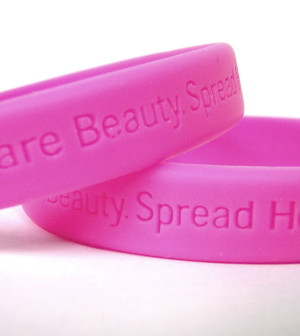- Could Your Grocery Store Meat Be Causing Recurring UTIs?
- Are You Making This Expensive Thermostat Error This Winter?
- Recognizing the Signs of Hypothyroidism
- 10 Strategies to Overcome Insomnia
- Could Artificial Sweeteners Be Aging the Brain Faster?
- Techniques for Soothing Your Nervous System
- Does the Water in Your House Smell Funny? Here’s Why
- Can a Daily Dose of Apple Cider Vinegar Actually Aid Weight Loss?
- 6 Health Beverages That Can Actually Spike Your Blood Sugar
- Treatment Options for Social Anxiety Disorder
Breast Cancer Patients Might Prefer ‘Invisible Tattoo’


Using “invisible” tattoos instead of permanent dark ink ones when breast cancer patients undergo radiation therapy could help improve how patients feel about themselves, a new study finds.
The skin markings are needed to ensure that radiation therapy is given in the exact same spot during each treatment session. However, previous research has found that the permanent tattoos remind breast cancer patients of their disease for years after treatment, lowering levels of body confidence and self-esteem.
Also, the dark ink tattoos can be difficult to spot on dark-skinned women, which could result in inconsistent radiation treatment in the targeted areas, the researchers said.
The new study included 42 breast cancer patients who were undergoing radiation therapy and were asked how they felt about their body before treatment and one month later. Half of the women had conventional dark ink tattoos and half had fluorescent tattoos only visible under ultraviolet light.
Fifty-six percent of the women with the invisible tattoos felt better about their bodies one month after treatment, compared with 14 percent of those with dark ink tattoos, the researchers found. Treatment accuracy was the same in both groups of patients.
The findings were presented this week at a National Cancer Research Institute meeting in the United Kingdom.
“These findings suggest that offering fluorescent radiotherapy tattoos as an alternative to dark ink ones could help ameliorate the negative feelings some women feel towards their bodies after treatment,” study author Steven Landeg, a senior radiographer at the Royal Marsden Hospital in London, said in a research institute news release.
“It’s important to remember that body image is subjective, and dark ink radiotherapy tattoos will affect patients differently, but we hope that these results will go some way towards making this a viable option for radiotherapy patients in the future,” he added.
The data and conclusions of research presented at meetings are usually considered preliminary until published in a peer-reviewed medical journal.
More information
The U.S. National Cancer Institute has more about breast cancer treatments.
Source: HealthDay
Copyright © 2026 HealthDay. All rights reserved.










